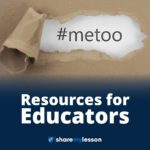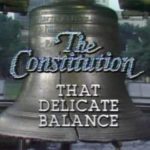How do educators invest in productive, deep, and transformative dialogue in their classrooms? Civic Conversations is a collaboration between the Edward M. Kennedy Institute’s civic education programming and the community-building dialogic structure practiced by Essential Partners. Explore resources, activities, and lesson structures that support educators as they facilitate difficult conversations, create inclusive learning environments, raise complex discussions, and promote a safe space for students to consider their values and engage in their communities. Policy simulations at the Kennedy Institute reflect the wide range of issues that face our country today. Students debate the best way to reform our immigration system, consider the balance between privacy and security, and think about how to meet the challenge of climate change. As in the real Senate, it’s natural that students will disagree on the best approach to many civic issues. This collection of resources will support educators as they prepare to discuss civic issues, either in preparation for a Kennedy Institute field trip or to practice listening, sharing, and learning in the classroom.
How House and Senate Committees Work
Committees improve the organization of the Senate and House of Representatives. Members of Congress can’t be experts on all issues. For this reason, the Senate and House of Representatives developed committees that focus on particular subjects. Committees look at the way that government functions; identify issues that require review; gather and evaluate information; and make legislative
recommendations to the full House or Senate.
1968: The Poor People’s Campaign
1968 was a tumultuous period in the United States. The Vietnam War, political assassinations and civil rights issues were among some of the challenges the country faced as solutions were sought. At this time, Martin Luther King Jr. organized the Poor People’s Campaign to shift the focus of the civil rights movement to economic issues; however, Reverend King was assassinated weeks before the campaign got underway in Washington, D.C. In this lesson, students will learn about the circumstances that gave rise to this campaign and how it is relevant today.
Dealing With Controversial Issues/Social Studies in Action Library
This program examines how social studies teachers in any grade level can encourage open and informed discussions with their students while dealing with controversial issues. Topics range from stereotypes and gender–based discrimination to the conflict in the Middle East. Through clearly identifying issues, listening to multiple perspectives, and formulating personal positions, teachers explore strategies that can be used to teach challenging issues such as these in their own classrooms.
The Me Too Movement: Resources for PreK-12 Teachers and School Staff

The #MeToo and #MeTooK12 movement is an opportunity for schools to reflect on how to address issues of consent, sex education, relationships and undoing a pervasive culture of silence. April is also Sexual Assault Awareness month. The Share My Lesson team curated a collection of free resources to help educators with critical conversations and lesson planning, as well as school procedures and policies and opportunities for reflection.
The Constitution: That Delicate Balance

Constitutional issues come to life in this Emmy Award-winning series. Key political, legal, and media professionals engage in spontaneous and heated debates on controversial issues such as campaign spending, the right to die, school prayer, and immigration reform. This series will deepen understanding of the life and power of this enduring document and its impact on history and current affairs, while bringing biases and misconceptions to light.
Civic Art Project: Considering Leadership
The materials in this curriculum packet are designed to be a classroom resource, a guide to think about the qualities of good leadership, and a creative prompt to create a political poster representing leadership and sharing a vision for the future. Teach your students about elections, help them consider issues that matter to them, and watch as they lend their voices to our national conversation about leadership.
Making the Constitution (CKHG Unit)
Students who listen to this Grade 2 Core Knowledge History and Geography unit discover that Americans had a difficult task at hand after winning the Revolutionary War: they had to figure out a better way to govern themselves. Such leaders as James Madison, George Washington, Alexander Hamilton, and Benjamin Franklin traveled to Philadelphia to meet at the Constitutional Convention, with the goal of creating a new government. Students learn that the talks were held in secret in Independence Hall and that American leaders argued about many issues until they agreed to approve a new Constitution. They then hear that James Madison (whom we call the Father of the Constitution), along with John Jay and Alexander Hamilton, wrote the Federalist Papers to explain the document’s merits and to persuade the states to vote for it. Students find out that the states did finally approve the Constitution; that Madison wrote a Bill of Rights that was added to it; that the Constitution gives the American people the right to decide what the laws should be for our country; and that we can still amend it today.(5 lessons)
Deliberation Materials: Gun Licensing
Should the federal government require licenses for gun owners and purchasers? This activity includes a deliberation reading and glossary, as well as accompanying handouts to give students additional information on the topic and to guide them through the deliberation process from planning to reflection. Deliberation teaches people how to discuss controversial issues by carefully considering multiple perspectives and searching for consensus. In preparation for deliberations, all participants read common, balanced background information on the issue. During the discourse, they offer arguments for each position on a contested public issue, first drawing from the text and then bringing in their own experiences.
Women & the American Story: Confidence and Crises, 1920-1948
This free curriculum unit from the New-York Historical Society considers what it meant to be American in the decades following World War I. Materials focus on the tensions caused by the social, economic, and political shifts of the era and how women took action on a broad array of issues.